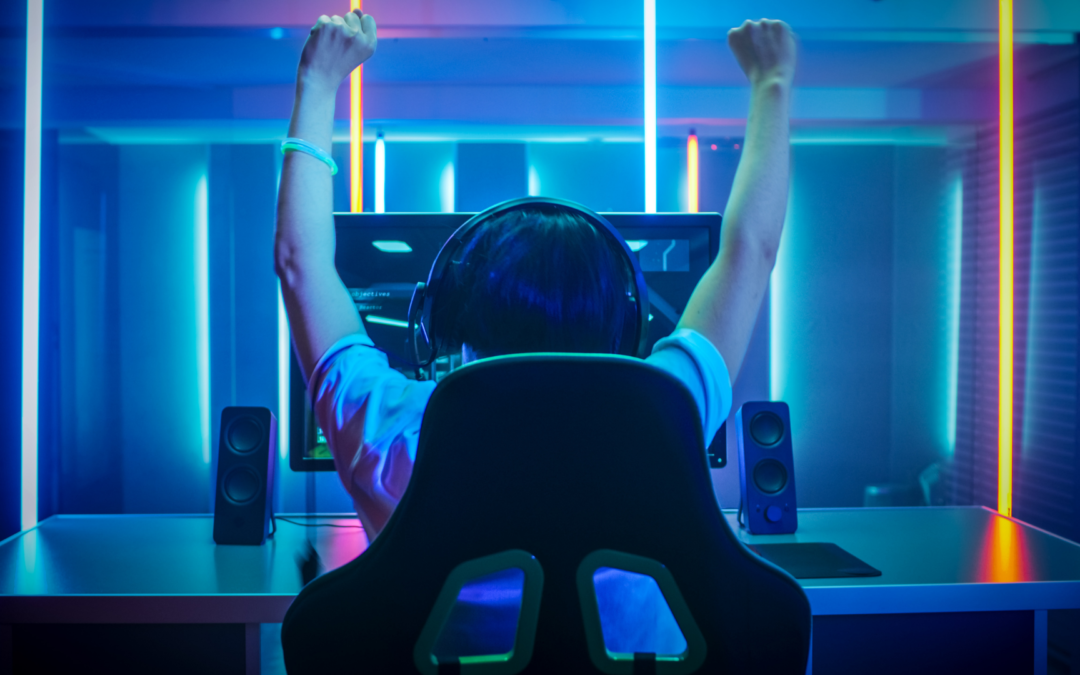In the spring of 2020, COVID-19 transformed traditional sports overnight. eSports became the answer for stakeholders who were looking for their investments to remain fruitful. The result was the proliferation of eSports into the social mainstream and it offered hours of entertainment for audiences looking for new content. The number of players skyrocketed as a way to stay connected during socially distanced times.
Although the popularity of eSports during the pandemic proved competitive gaming is much more than hype, it also demonstrated that the industry hasn’t quite yet prepared itself for a mainstream role in the media. The accelerated output and heightened attention on the eSports market to highlight the fundamental flaws at the industry’s core. But to spotlight these issues, the industry needs to focus on prioritizing professionalization amongst its players. There are three critical areas that the eSports community can help build upon this professionalization of its players.
Competitive Integrity
Although the industry pivoted to online events to survive, it removed many critical in-person benefits, like the energy of a cheering crowd or the collective fandom of rooting for a favorite team. Those elements make the competitive gaming experience part of the fun. Unavoidably, this led to player oversight which caused several violations of rules and regulations to occur. In Counter-Strike, a software bug was exploited and more than 30 coaches were banned as suspicious player disconnections in the Call of Duty League playoffs took place. Other risks also cropped up during the transition to online gaming as tournament moderators could not be there physically.
Competitive integrity is crucial to the success of players, fans and eSports stakeholders. It offers them the confidence that the matches they watch or compete in are played fairly and transparently. As in-person events make a comeback in 2021, eSports leaders must address installing industry-wide standards regarding integrity, so the eSports climate can move to a more sustainable future. Otherwise, the main issue will only worsen if we don’t identify and resolve many of these competitive player issues through a benchmark that the gaming industry should adopt at the very top echelons.
Diversity and Inclusion
It’s evident that eSports is a male-dominated industry and not enough changes have occurred over the past decade. In 2020, that conversation came to the forefront as the #MeToo movement gained momentum. eSports came into focus as calls for change and acceptance grew more apparent. One way we can make eSports more inclusive and tolerant is for the industry to fix these issues directly. The company, AnyKey, helps to foster safer online environments for everyone by encouraging gamers, professional eSports athletes, and even streamers to sign up for the Good Luck, Have Fun pledge, which supports building a positive and inclusive experience in the gaming world. Those who sign the pledge receive a global chat Twitch badge to signify their commitment to combat toxic behaviors and not engage in harassment or other disruptive behaviors. If violated, their badges are revoked.
One of the benefits of eSports is that gaming isn’t limited by age, gender or ethnicity. Games don’t even solely benefit able-bodied participants; anyone can join. Due to the increased digitization of eSports, the sector has an opportunity to create even more opportunities for a wider majority. It can also serve as an outlet for creative strategy and self-expression while fostering acceptance. The industry and its community must overcome these challenges with open minds and collaborate towards resolving them. If implemented, eSports will be a better place to grow the potential to be a widespread, gender-inclusive and global industry with longevity in today’s modern culture.
Player Support
As eSports became an in-demand content provider, the race to fill the free time on channels came at a cost to many player’s physical and mental health. Many fans were able to participate in a jam-packed schedule of tournaments and matches, some players were pushed to their physical limits and they didn’t catch up on crucial self-care practices like rest. If industry leaders hope to keep on fostering the growth of eSports, these players must be treated like professional athletes. The need for industry resources that provide for the physical and mental wellbeing of its players and teams is crucial and organizers will have to collaborate to standardize schedules that work for everyone, similar to professional sports leagues.
One company already taking the initiative to improve player wellbeing is Complexity. They have used the Dallas Cowboys’ model of player care to learn best practices to improve the health and wellbeing of each professional esports participant outside of the game. Working with companies like Herman Miller, they also test products that can enhance player posture and help prevent injuries. The company is also in the process of studying the comfort, function and mobility of its athletes. They will use that data to influence new training and improve haptic technology’s impact on physical movement.

